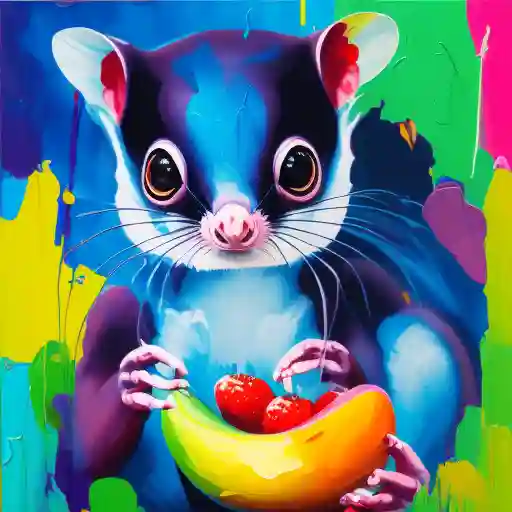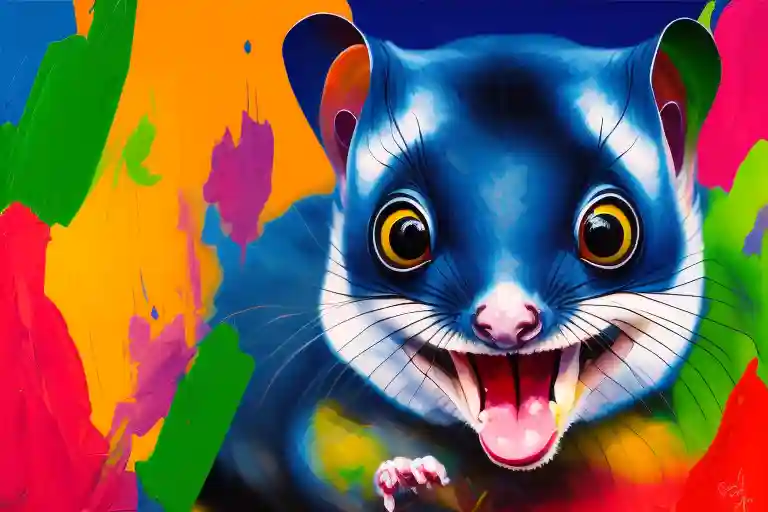Learn whether sugar gliders can drink distilled water, the best water sources, and the importance of hydration for these adorable pets. Get expert tips and recommendations.
Sugar gliders, those charming marsupials, make wonderful pets, but their care comes with unique considerations, including their hydration needs. One question that often arises is whether sugar gliders can safely drink distilled water. In this comprehensive guide, we’ll explore this question and provide you with expert advice, valuable insights, and guidelines on ensuring the optimal hydration for your beloved sugar gliders.
Understanding Sugar Gliders’ Hydration Needs:
Sugar gliders, like many living creatures, require proper hydration to maintain their health and well-being. Water plays a crucial role in their bodily functions, from digestion to temperature regulation. As pet owners, it’s our responsibility to provide them with a consistent and clean water source that meets their physiological needs.
The Dangers of Distilled Water for Sugar Gliders:
While distilled water may be safe for humans, it’s not the ideal choice for sugar gliders. Distilled water lacks essential minerals and can be too acidic for these marsupials. It’s essential to avoid offering distilled water to sugar gliders, as it may lead to imbalances in their internal pH levels and disrupt their overall health.
Ideal Water Sources for Sugar Gliders:
Bottled water and filtered water are the recommended options for providing sugar gliders with a safe and suitable hydration source. Bottled water, available in pet stores, ensures consistent purity and mineral content. Filtered water, whether from a quality filtration system or a purification machine, can also be a reliable choice, especially if you’re concerned about tap water quality.
Can Sugar Gliders Drink Tap Water?:
While tap water may be safe in some areas, it’s crucial to consider its quality. Tap water may contain chemicals, contaminants, or fluctuating mineral levels that can be harmful to sugar gliders. If you choose to use tap water, ensure it’s properly filtered or treated to remove potential hazards.
Water Quality and Purity:
The quality of water directly impacts the health of sugar gliders. Contaminants in water can lead to serious health issues, and it’s essential to provide them with water that meets high purity standards.
Maintaining a Sugar Glider’s Water:
Regularly check the water supply for cleanliness and refill it as needed. A clean water bottle or dish is crucial to prevent bacteria growth and ensure your sugar gliders have access to fresh water.
The pH Factor: Why It Matters:
The pH level of water is a critical consideration for sugar glider health. Distilled water’s acidic nature can disrupt their internal pH balance, leading to potential health problems. Opting for water with a pH level that aligns with their needs is essential.
Expert Insights on Sugar Glider Hydration:
Veterinarians and experienced sugar glider owners unanimously recommend avoiding distilled water as the primary water source. The pH level of distilled water is not suitable for sugar gliders, and it’s best to provide them with bottled or filtered water.
Common Water-Related Questions for Sugar Gliders:
- What kind of water can sugar gliders drink?
- Is distilled water the same as purified water?
- Can sugar gliders drink filtered water?
- How safe is distilled water for sugar gliders?
- Is tap water suitable for sugar gliders?
- Can sugar gliders drink spring water?
Is Distilled Water Safe for Other Pets?:
While sugar gliders should avoid distilled water, it’s essential to consider the hydration needs of other pets as well. Consult with your veterinarian to determine the most suitable water source for each of your furry friends.
Sugar Glider Environments: Providing Water and Shelter:
Creating a safe and comfortable environment for your sugar gliders includes not only proper hydration but also a suitable shelter. Ensure that their living space is well-maintained, clean, and equipped with a reliable water source.
The Role of Toys and Cage Design in Hydration:
Sugar gliders are curious and playful creatures. Their toys and cage design can impact their hydration indirectly. By providing stimulating toys and proper cage setup, you encourage them to be active, which can increase their water intake.
Safety Tips for Sugar Glider Care:
- Always provide fresh, clean water.
- Monitor the water supply daily for cleanliness.
- Choose bottled or filtered water over distilled water.
- Ensure the water source is easily accessible to your sugar gliders.
- Consult a veterinarian for specific care recommendations.
Nectar Treats vs. Hydration: Striking the Balance:
While it’s fun to treat your sugar gliders with nectars and other goodies, remember that water is essential. Don’t substitute nectar treats for water. Maintain a balance between offering treats and ensuring they have constant access to water.
Healthy Sugar Gliders: Diet and Water:
A well-balanced diet, combined with proper hydration, contributes to the overall health and happiness of sugar gliders. Pay attention to their diet and water intake to ensure they thrive.
Preventing Dehydration in Sugar Gliders:
Dehydration can be harmful to sugar gliders, leading to serious health issues. Prevent dehydration by providing a consistent and reliable water source, especially during warmer months or when they’re particularly active.
Avoiding Waterborne Health Risks:
Waterborne illnesses can be a concern for sugar gliders, just as they are for other pets. Keep their water supply clean and free from contaminants to reduce the risk of waterborne health problems.
A Look at Other Water-Related Risks:
Apart from water quality, there are other considerations when it comes to sugar glider hydration. These include the design of their water bottle, the placement of the water source within the cage, and the temperature of the water.
Sugar Glider Water Bottle Tips:
- Use a clean, pet-specific water bottle.
- Ensure the nozzle is in good condition and working properly.
- Place the water bottle at a suitable height for easy access.
- Regularly clean and sanitize the water bottle to prevent bacteria growth.
Addressing Common Misconceptions:
There are various misconceptions about sugar glider care, including their water needs. It’s crucial to rely on expert advice and credible sources to provide the best care for your sugar gliders.
Sugar Gliders and Water Allergies:
Sugar gliders, like any living beings, can have sensitivities or allergies. While water allergies are rare, it’s essential to observe your sugar gliders’ behavior and health to identify any unusual reactions.
Sugar Glider Hydration: Conclusion and Recap:
In conclusion, sugar gliders should not be given distilled water due to its acidity and lack of essential minerals. Instead, opt for bottled or filtered water to ensure their hydration needs are met. Regularly monitor their water supply, maintain a clean living environment, and provide a balanced diet to keep your sugar gliders happy and healthy.
Frequently Asked Questions (FAQs):
Q: What kind of water can sugar gliders drink?
A: Sugar gliders should drink bottled or filtered water for optimal hydration.
Q: Is distilled water the same as purified water?
A: While both are purified, distilled water lacks essential minerals, making it unsuitable for sugar gliders.
Q: Can sugar gliders drink filtered water?
A: Yes, filtered water is a safe and suitable option for sugar gliders.
Q: How safe is distilled water for sugar gliders?
A: Distilled water’s acidity and lack of minerals make it unsafe for sugar gliders as their primary water source.
Q: Is tap water suitable for sugar gliders?
A: Tap water quality varies, and it’s essential to ensure it’s properly filtered or treated before offering it to sugar gliders.
Q: Can sugar gliders drink spring water?
A: Spring water can be safe for sugar gliders, but it’s essential to check the mineral content and quality.
In Summary:
Providing proper hydration for your sugar gliders is a fundamental aspect of responsible pet ownership. Avoid distilled water, opt for bottled or filtered water, and maintain a clean water supply to ensure the health and happiness of your adorable sugar gliders. Remember to consult with a veterinarian for personalized guidance on sugar glider care and hydration.

